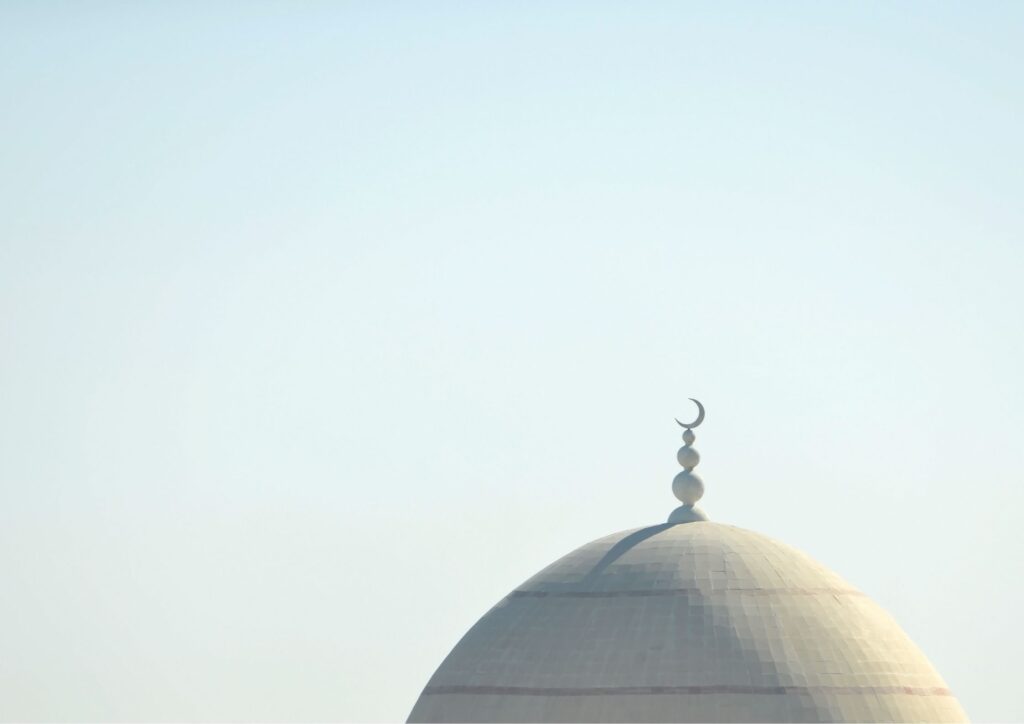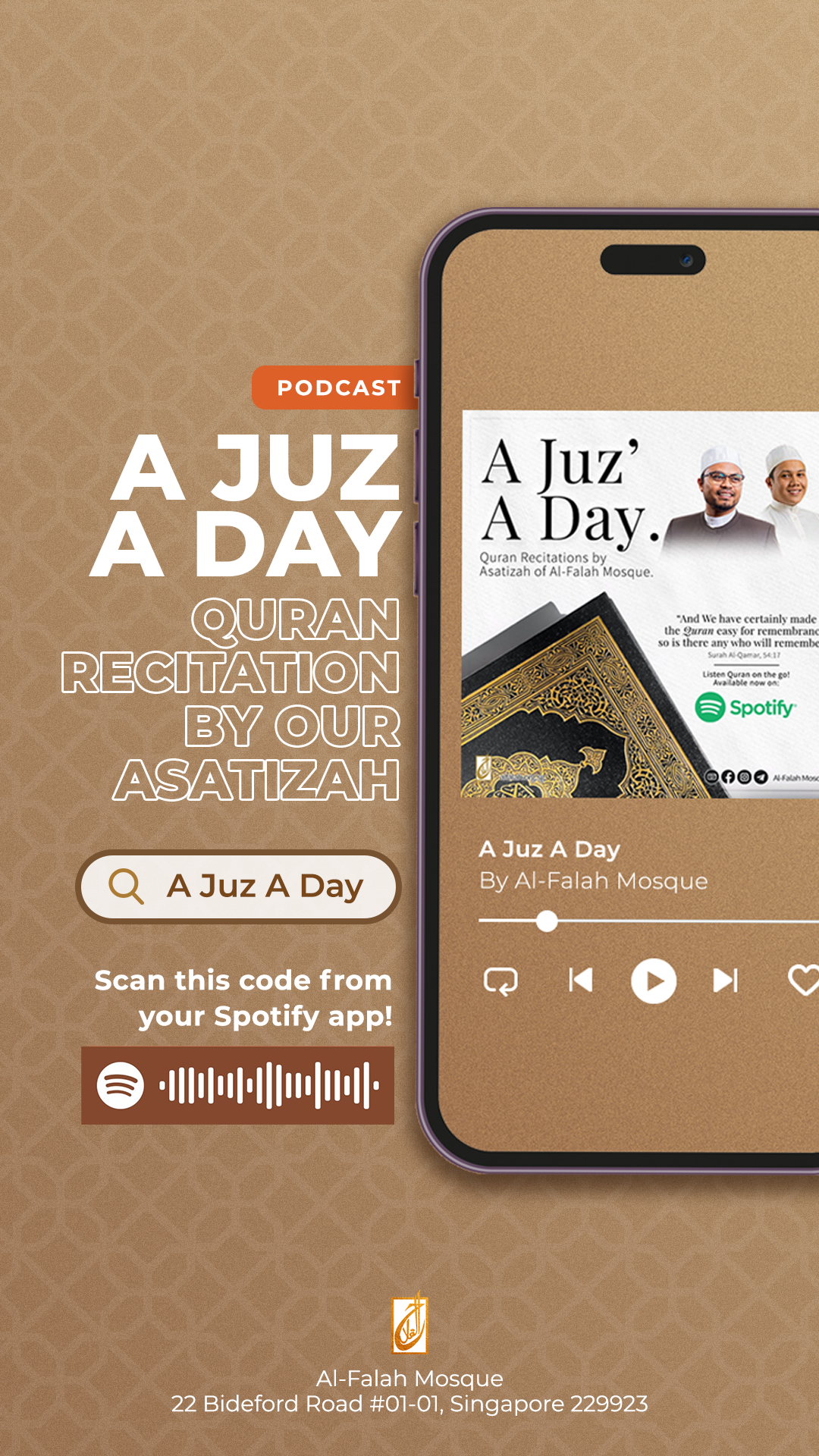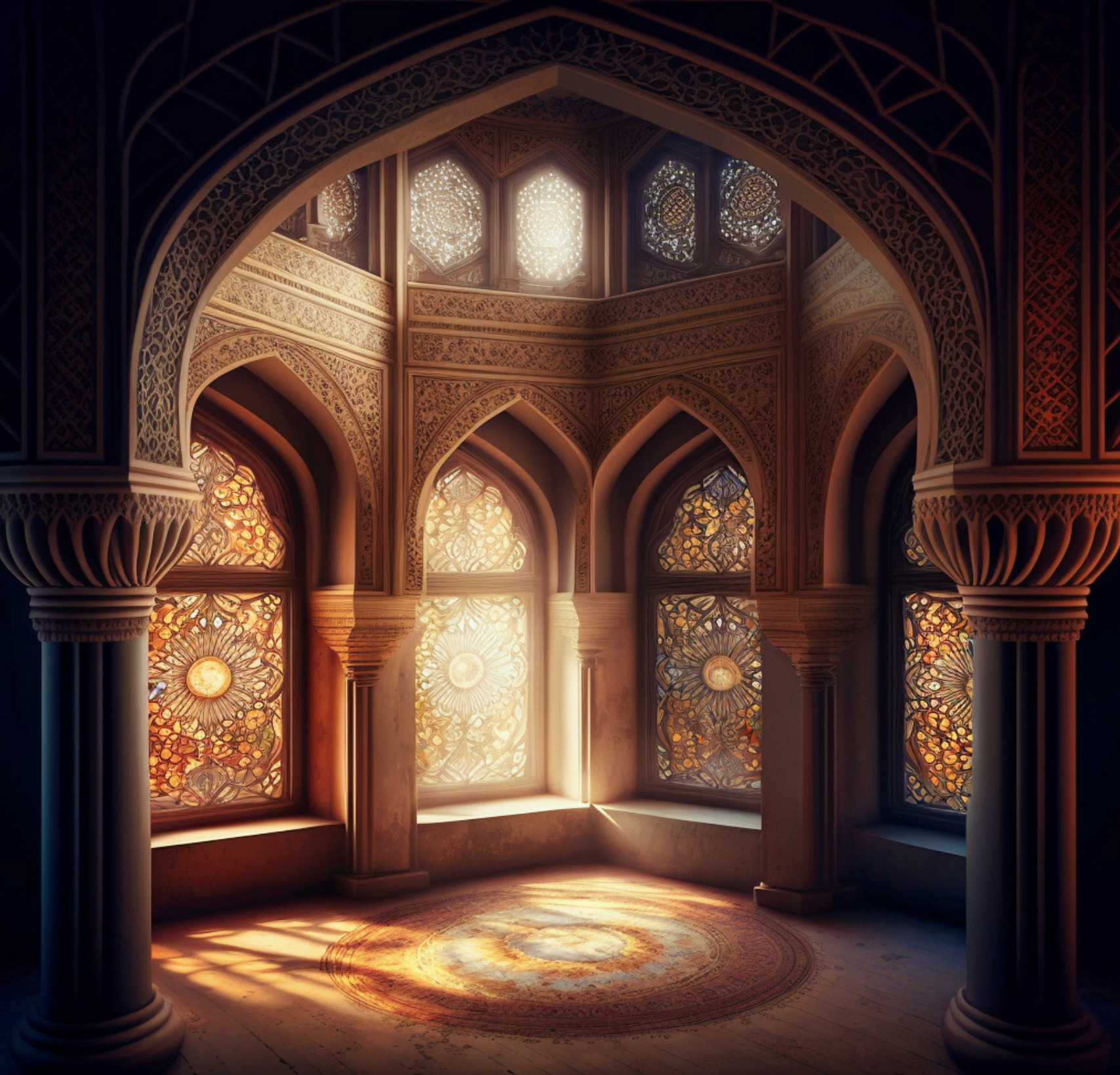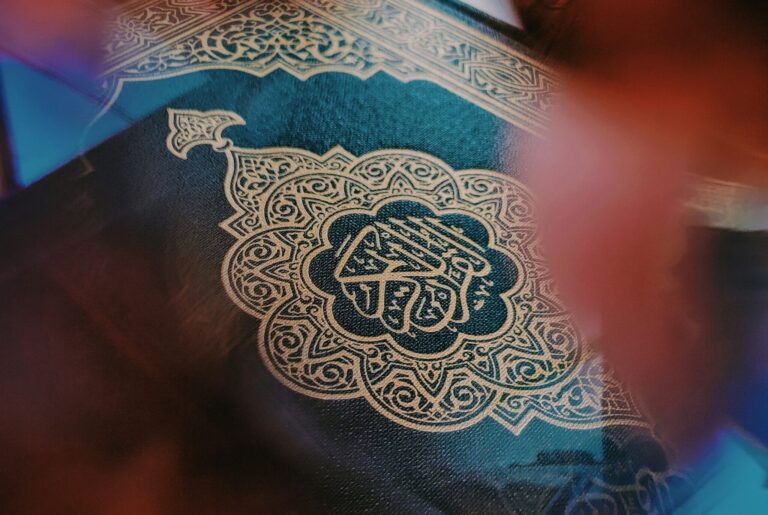Articles
The Significance of ‘Itikaf in Ramadan
- BY Ustaz Fahmy Ahmad Jamil
- ON
- mosque, itikaf, pray, qiyamullail

‘Itikaf is a virtuous act of worship that is encouraged in Islam and highly encouraged in the month of Ramadan. The default ruling on ‘itikaf is sunnah or recommended, but it can become wajib or obligatory act of worship if we make nazr or oath to perform it. In this blessed month, any good deeds will be multiplied in folds. ‘Itikaf is basically a form of retreat, to take some time away from any distraction, to strengthen our relationship with Allah s.w.t.
Allah s.w.t says in the Qur’an:
وَلَا تُبَٰشِرُوهُنَّ وَأَنتُمۡ عَٰكِفُونَ فِي ٱلۡمَسَٰجِدِۗ
“Do not be intimate with your spouses while you are in retreat in the mosques.” (Al-Baqarah:187)
This verse is a clear guidance from the Qur’an about the ruling of ‘itikaf and what actions invalidate the worship.
Staying focus in searching Lailatul Qadar.
Rasulullah s.a.w is our role model, as he s.a.w showed us to seclude ourselves and remove any distractions that hinders our search of Lailatul Qadar. The exact moment of Lailatul Qadar is a secret only known to Allah s.w.t. This is why Rasulullah s.a.w guided us to look for Lailatul Qadar in the last ten nights, and within these ten nights and especially in the odd nights. Rasulullah s.a.w said:
عن عائشة رضي الله عنها، أن رسول الله صلى الله عليه و سلم فال: ” تحروا ليلة القدر في الوتر، من العشر الأواخر من رمضان
From ‘Aisyah (may Allah be pleased with her), she mentioned that Rasulullah s.a.w said: “Seek Lailatul Qadar in the odd nights out of the ten nights of Ramadan.” (Bukhari)
When we are focused, in searching for an important item, we will put in extra effort in our search. So that we will not miss any details or be distracted from the search. That is how Rasulullah s.a.w was when he did his ’itikaf.
عن عائشة رضي الله عنها قالت كان رسول الله صلى الله عليه و سلم اذا دخل العشر شدَّ مئزره, و احيا ليله, و ايقظ اهله
From ‘Aisyah (may Allah be pleased with her), she said that the Prophet s.a.w used to tighten his waist belt (a figurative speech meaning to work hard), and used to worship all night, and wakes his family to worship. (Bukhari)
In our pursuit of searching for Lailatul Qadar, let us not forget to rope in our family members in doing so, as this was done by Rasulullah s.a.w and also an act of doing goodness.
A personal space to attain taqwa and Allah’s forgiveness
The main objective of fasting is to attain taqwa or the state of God consciousness. ‘Itikaf will help us to achieve taqwa as we are in retreat, sitting in the mosque, either fasting in the day, reciting the Qur’an or performing solat in the night. With the hope that while performing ‘itikaf, within our personal space, we are able to understand our recitation of the Qur’an, to really have khushu’ or concentration in our prayers. When we are in the state of seclusion, it will enable us to have sincerity in our worship to Allah s.w.t.
Performing ‘itikaf will also help us attain Lailatul Qadar. If we act with sincerity and hopefulness from Allah s.w.t, and He will forgive our sins.
عن ابي هريرة رضي الله عنه عن النبي صلى الله عليه و سلم قال: “من قام ليلة القدر ايمانا و احتسابا غفر له ما تقدم من ذنبه، من صام رمضان ايمانا و احتسابا غفر له ما تقدم من ذنبه
From Abu Hurairah (may Allah be pleased with him), the Prophet s.a.w said: “Whoever spends the nights of Ramadan in prayer out of faith and in the hope of reward, his past sins will be forgiven, and whoever fast in Ramadan out of faith and in the hope of reward, his past sins will be forgiven.” (Bukhari).
Foster attachment to the mosque
We are well informed that ‘itikaf must be performed in a mosque. As Muslims, it is important for us to view the mosque as the centre of our worship ; be it individual worship or a communal one. Especially in Ramadan, we will have people from all walks of life, coming to the mosque to break their fast together, preparing the food and eating the food together. This is then followed up by performing prayers in congregation. When we choose to perform ‘itikaf, the mosque becomes our ‘home’. This will create a sense of responsibility towards the mosque, ensuring that the mosque is clean, making it comfortable for every worshipper. It is the responsibility of every believer to enliven and maintain our mosques to the highest of standards, as these people are chosen by Allah s.w.t to serve the mosque. Allah s.w.t mentions in the Qur’an:
إِنَّمَا يَعۡمُرُ مَسَٰجِدَ ٱللَّهِ مَنۡ ءَامَنَ بِٱللَّهِ وَٱلۡيَوۡمِ ٱلۡأٓخِرِ وَأَقَامَ ٱلصَّلَوٰةَ وَءَاتَى ٱلزَّكَوٰةَ وَلَمۡ يَخۡشَ إِلَّا ٱللَّهَۖ فَعَسَىٰٓ أُوْلَٰٓئِكَ أَن يَكُونُواْ مِنَ ٱلۡمُهۡتَدِينَ
“The mosques of Allah should only be maintained by those who believe in Allah and the Last Day, establish prayer, pay alms-tax, and fear none but Allah. It is right to hope that they will be among the (truly) guided.” (At-Tawbah:18)
Finally, those who are attached to the mosque and remember Allah s.w.t with full sincerity in seclusion, will InsyaAllah have the protection of Allah s.w.t in the Day of Judgement. Rasulullah s.a.w said:
عن أبي هريرة، عن النبي صلى الله عليه وسلم قال: “سبعة يظلهم الله في ظله يوم لا ظل إلا ظله: الإمام العادل، وشاب نشأ في عبادة ربه، ورجل قلبه معلق في المساجد، ورجلان تحابا في الله اجتمعا عليه وتفرقا عليه، ورجل طلبته امرأة ذات منصب وجمال، فقال إني أخاف الله، ورجل تصدق، أخفى حتى لا تعلم شماله ما تنفق يمينه، ورجل ذكر الله خاليا ففاضت عيناه
From Abu Hurairah (May Allah be pleased with him), he mentioned that the Prophet s.a.w said, “Allah will give shade, to seven, on the Day when there will be no shade but His. (They are) a just ruler, a youth who has been brought up in the worship of Allah, a man whose heart is attached to the mosques, two persons who love each other only for Allah’s sake and they meet and part in Allah’s cause only, a man who refuses the call of a charming woman of noble birth for illicit intercourse with her and says: I am afraid of Allah, a man who gives charitable gifts so secretly that his left hand does not know what his right hand has given , and a person who remembers Allah in seclusion and his eyes are then flooded with tears.” (Muttafaqun alaih)
In conclusion, ‘itikaf in an act of worship that helps us to attain taqwa and the forgiveness of Allah s.w.t. It is an ibadah exclusive only to those who are sincere and seeking the goodness of this world and the hereafter. May Allah s.w.t grant us strength and sincerity in performing ‘itikaf and may He accept all of our ‘ibadah in this Ramadan.
Disclaimer
Support Our Dakwah










